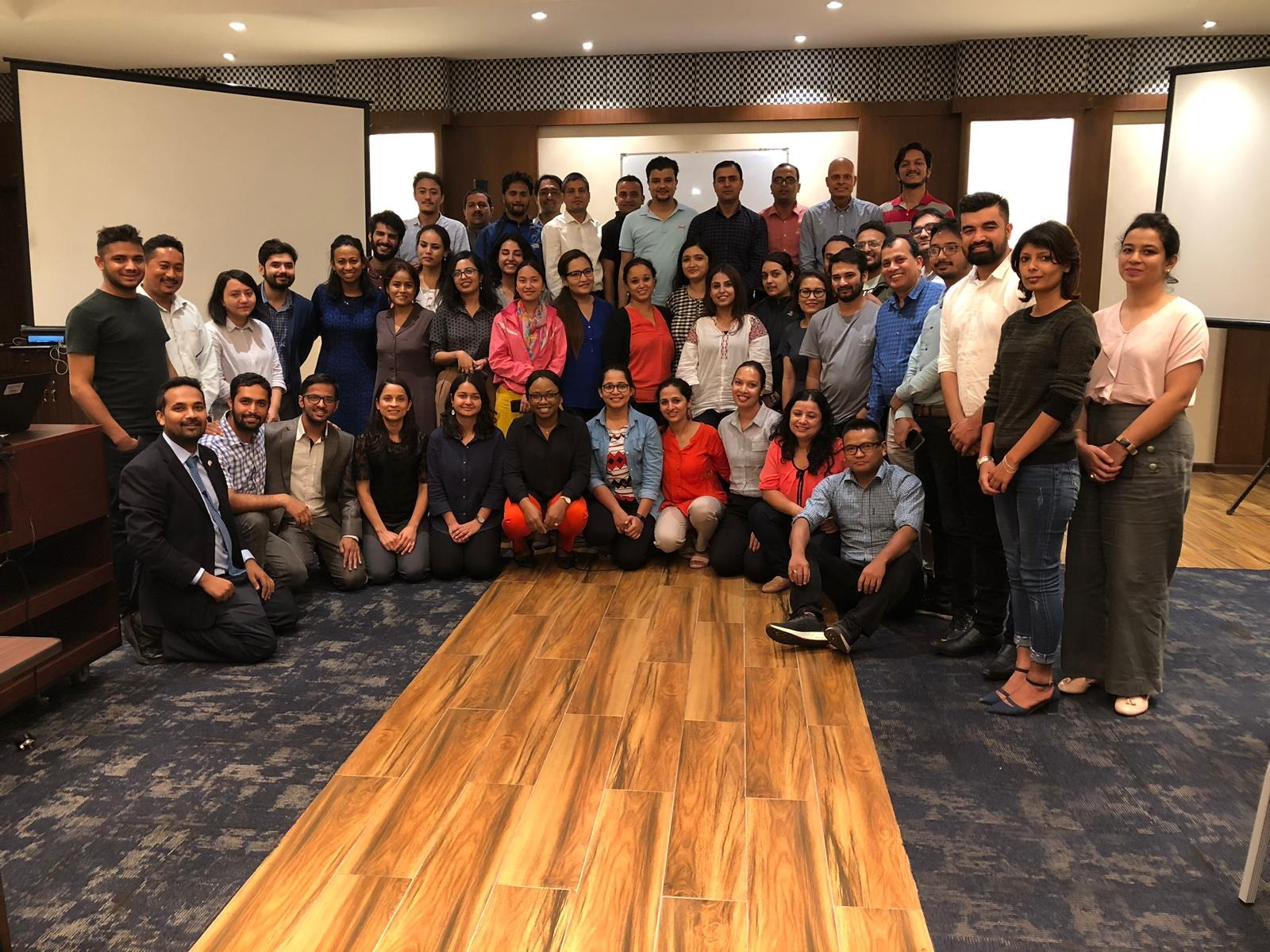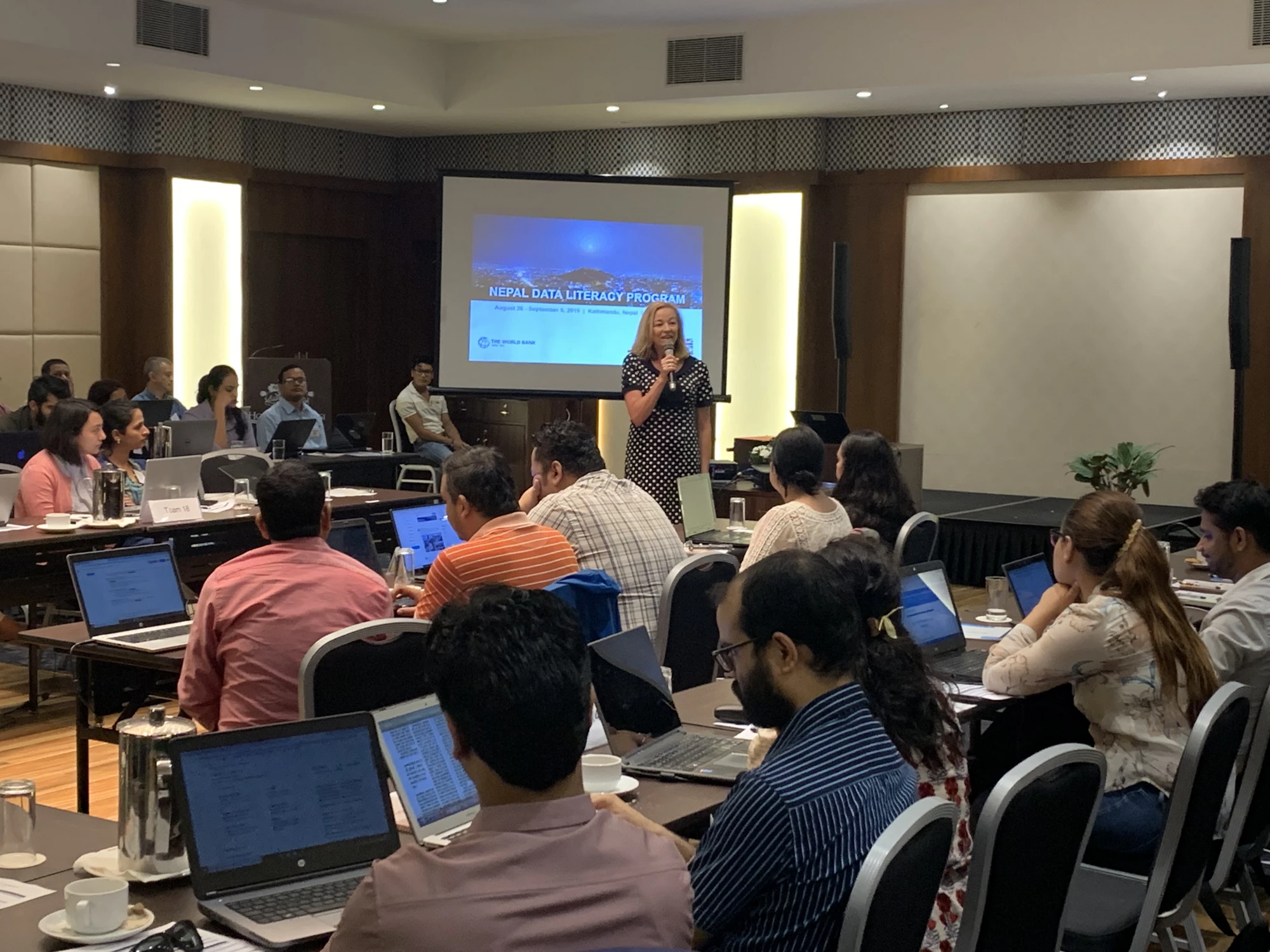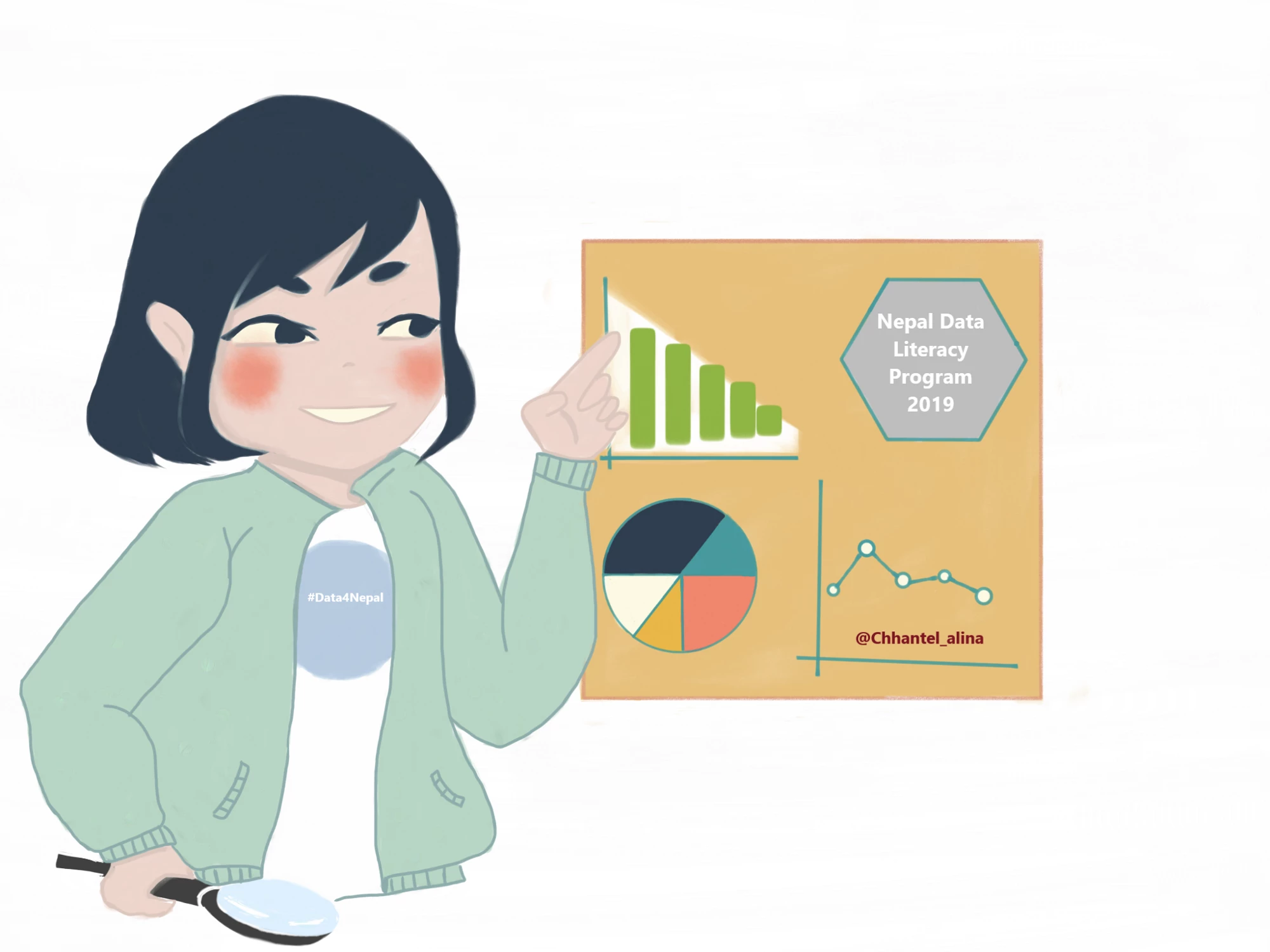 Participants and trainers of the Nepal Data Literacy Program are all smiles
Participants and trainers of the Nepal Data Literacy Program are all smiles
Nepal needs quality and timely data to achieve its development goals and become a middle income-country by 2030 , urged Faris H. Hadad-Zervos in a recent opinion piece.
Hadad-Zervos, who currently serves as World Bank Country Manager for Nepal, also highlighted the importance of data literacy and training data professionals to build stronger institutions and deliver better services as Nepal transitions to a federal system.
To support that bold ambition, the World Bank, together with DFID Nepal, has launched a three-phased 100-hour Nepal Data Literacy program.
Last summer, 82 participants from academia (27), civil society (25), private sector (11), media (8), and international and other organizations (11) representing over 50 organizations took a 40-hour face-to-face training, the first phase of the program.
During this phase, participants learned how to find, clean, analyze and synthesize data by using exploratory data analysis and visualization tools.
The goal is that they will use this body of knowledge to benefit their organizations and communities.
Ravi Kumar, team lead of the data literacy program noted recently that “being data literate could empower communities to play a significant role in helping the country achieve its development objectives.”
This training birthed a variety of team projects that use data to address such critical issues as education or women's access to finance.
During the second phase of the program, participants trained over 100 people in their community three months after the program launch.
A 60-hour training with 57 participants representing over 30 organizations wrapped up the third phase of the program in August and September.
This face-to-face training covered inferential statistics, python, machine learning, artificial intelligence, tableau, leading a data-driven project, design thinking, and leadership.
In her opening remarks, Lisa Honan, Head of DFID Nepal, underscored the importance of data for global development work. “For DFID, having the capacity to understand and use data from UKAID programs helps them understand what people need, what works and what might need revision," she said.

Impact of the program
Nishtha Rajbhandari, one of the participants from British College, has conducted in-house training in her college with her colleagues, using the knowledge and insights from the program.
“Data is a tool that can be immensely valuable to analyze and update the education system,” said Nishtha, who is working on updating her college curriculum for undergraduate and graduate programs.
Following the same logic, Kathmandu University School of Management (KUSOM) is partnering with Nepal Data Literacy Program to incorporate data-literacy toolkits in their BBA program and develop a data-driven course, freely and openly available to other institutions and thousands of students.
Participants from civil society and media have also harnessed data to empower their communities.
Nishant Khanal, a former trainee, now turned trainer, designed his own modules using the resources from the workshop and trained 20 journalists on the importance of data and visualization.
Nishant is now planning to use his data skills to create a data visualization portal for provincial revenue and expenses and take this as an organized venture.
Likewise, Sijal Pokharel from ICIMOD sees the program as a career booster. The skills she gained have made her “more efficient at her job.”
Anish Burtel, a representative from the Election Observation Committee, plans to train his staff in advance of the upcoming elections so that they can prepare reports using data analysis techniques and present results in a more accessible format.

Team reflections
The Data Literacy team comprised of members with diverse educational backgrounds-- computer science, mathematics, economics-- from Nepal, Nigeria, Pakistan, and the United States.
This team diversity underpins the program design and delivery.
While dedication and singularity of purpose bound us all together, camaraderie and humor kept us enthused creating a safe environment to challenge one another.
Although the training content was developed in advance of the workshop, the content and delivery underwent significant daily revision to adjust to participant’s learning curves, with a daily goal to leave no one behind.
A testament to the team’s efforts, participants rated the program very favorably: the program organization and management garnered a score of 4.6 out of 5; the program’s helpfulness was rated 4.4, and participants highly recommended the program to others.
Looking forward
With the workshops now under wrap, the growing data literacy community is keen to thrive.
Participants will continue to work on their projects with technical support from the World Bank team.
The portal with all the workshop materials is freely available to all participants and the general.
In December, we will host a solve-a-thon, in collaboration with DFID and The Asia Foundation, wherein the data literacy participants and others will develop data-driven solutions to address issues identified during the 100-hour workshop.
We hope this workshop serves as a foundation for our participants and inspires others in Nepal to embark on their data literacy journeys.




Join the Conversation